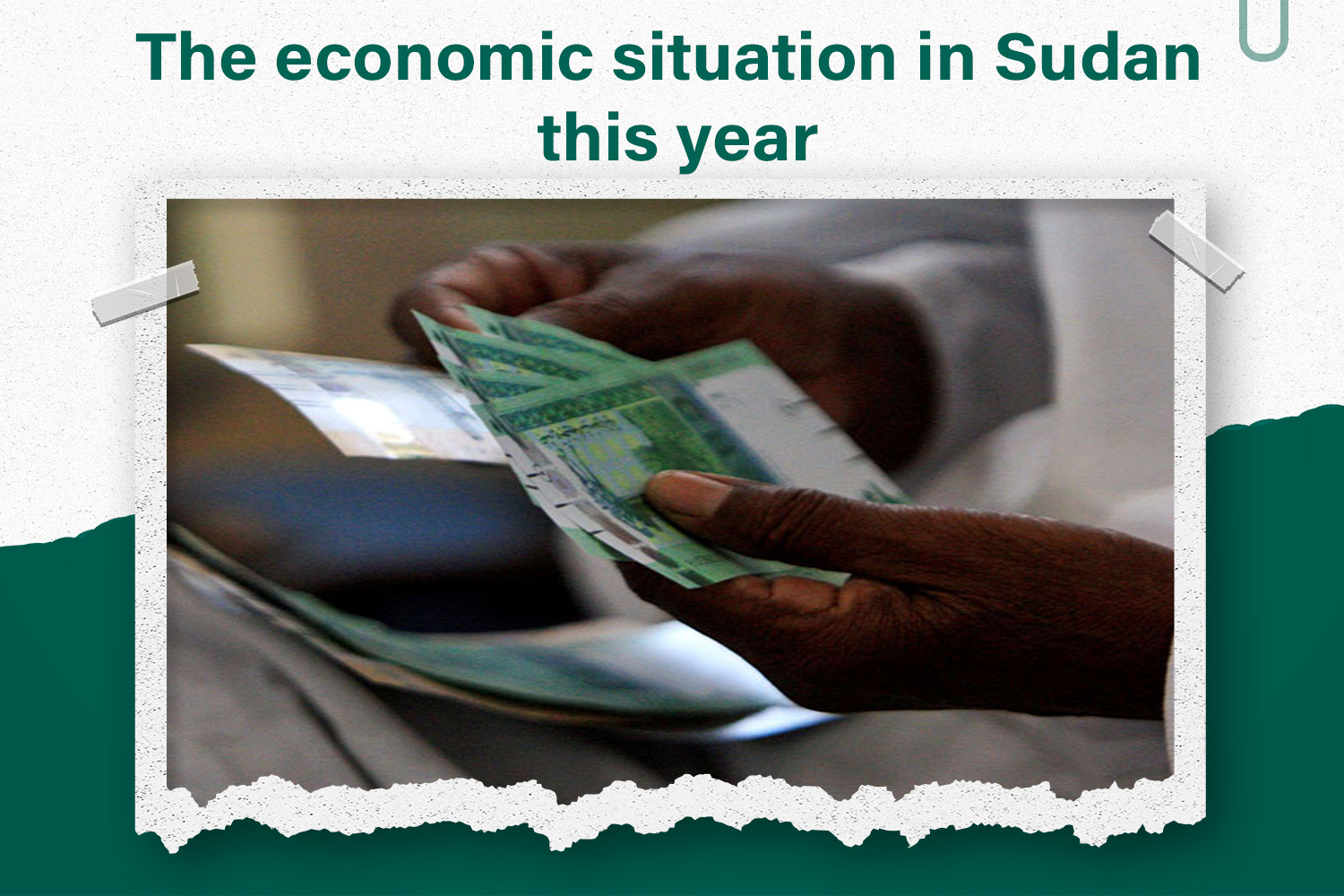The Sudanese economy is one of the most marginalized economies globally, due to the political and economic challenges it faces, which affect economic growth and financial stability.
Definition of the subject of study
This research aims to analyze the economic situation in Sudan, by studying the factors affecting economic growth and financial development. The economic reforms carried out in Sudan and the extent of their impact on the current economic situation will also be analyzed.
The importance of monitoring the economic situation of Sudan
The economic situation of Sudan is very important, as the socio-political and economic life of citizens is affected in one way or another. The economic situation also affects the position of Sudan politically and economically in the region and the world. Therefore, the economic situation should be improved and necessary reforms should be developed to achieve economic growth and financial stability.
Factors affecting the economic situation of the Sudan
Political and social factors
Sudan is facing many political challenges that affect economic growth and financial stability. These challenges include the impact of internal conflicts, adjustment disorders in society, declining trust in the government and the political system in general. Thus, these political and social factors influence foreign investments, trade and economic development.
Economic factors
The main economic factors such as inflation, imbalance in the trade balance and the decline in the value of local currency are influential factors in the economic situation of Sudan. However, the closure of borders with neighboring countries had a significant impact on the Sudanese economy, which was reflected in economic growth, inflation, exports and imports.
In addition, the agriculture sector is considered the core of the Sudanese economy and represents a major source of national income. However, due to weather conditions and climate changes, agricultural production and investment in agriculture have declined.
To achieve economic growth, Sudan must take comprehensive reforms to support economic growth, develop trade and promote foreign investments by providing an economic environment subject to good laws and regulations, in addition to comprehensive economic restructuring and restructuring.
The Sudanese economy faces many challenges, including price inflation, which affects the purchasing power of citizens and makes it more difficult to provide basic goods. Sudan also suffers from the problem of external debt, which increases the need for external financing and creates pressure on the balance of payments. Sudan also suffers from the problem of poverty and unemployment, which affects the lives of citizens greatly.

The economic situation in Sudan
The development of the Sudanese economy requires focusing on current problems and working to solve them. This can be achieved by increasing cooperation between the government and the private sector, improving the business environment, developing infrastructure and improving educational quality. The government should adopt programs that promote investment in the private sector and encourage the development of alternative industries to the agricultural sector, in addition to providing job opportunities for young people and developing the necessary skills for employment.
Economic policies of Sudan
National economic plan
The Sudanese government needs to develop sustainable and integrated economic plans to overcome the current challenges faced by the Sudanese economy. These plans should be concerned with providing quick solutions to increase productivity, reduce unemployment and improve the management of financial and human resources.
Investment policies
The government should work to promote investments in various sectors and provide an attractive investment environment for investors. Investment policies should focus on supporting key industries, promoting exports and attracting foreign direct investment. The government should also encourage cooperation with international organizations to attract the necessary financial and technical assistance for the development of the Sudanese economy.
The development of the Sudanese economy requires a comprehensive effort from the government, civil society and the private sector, and should not be limited to short-term measures, but attention to radical solutions that improve the situation of the country and its economic future.
Economic sectors in Sudan
The Sudanese economy contains several economic sectors that are important and vital in economic development, increasing productivity and promoting exports. These sectors are receiving the attention of the Sudanese government and international and local investors.

The economic situation in Sudan
Agriculture and livestock
Sudan has fertile agricultural lands and good water, and is characterized by the diversity of crops grown including wheat, corn, sorghum, peanuts, cotton, walnuts, dates and more. This sector is considered the main engine of the Sudanese economy as it makes up more than a quarter of the country’s GDP.
In addition, the animal sector occupies an important place in the Sudanese economy, relying heavily on animal husbandry activities such as raising livestock, cows, poultry, sheep and more. Many rural citizens benefit from this sector.
The Sudanese government needs to develop and strengthen these sectors by supporting farmers and breeders, improving the infrastructure of the agricultural and livestock sectors, as well as supporting research and development to improve the quality of crops and agricultural and livestock products.
Recommendations for improving the economic situation
Increasing investments in vital sectors
Economists advise to increase investments in vital sectors in Sudan, such as agriculture, mining and tourism. In fact, Sudan has enormous natural resources, but investment in these areas still needs to be supported and encouraged.
The role of the AHAD Association in Chad
It should strengthen the role played by the AHAD in activating economic relations between African countries, especially Sudan and Chad. Through the support of this association, trade and investments between African countries can be promoted, which in turn can help improve the economic situation of Sudan. Such cooperation requires the exchange of experience, the use of resources and direct communication between the parties involved.
Developments in the economic situation in Sudan in light of the corona pandemic
The challenges facing the Sudanese economy in light of the pandemic
The opinion does not differ that the corona pandemic has significantly affected the world economy, and Sudan was no exception to this. Last year, Sudan witnessed a decline in economic revenues and a deterioration in the value of the local currency, which affected the standard of living and exacerbated poverty.
Actions taken to address the consequences of the pandemic
Since the beginning of the pandemic, the Sudanese government has taken a number of measures to limit its repercussions on the economy. Among these measures are strengthening the health and security instructions for citizens, supporting the health sector in the country, facilitating administrative procedures for companies and institutions, in addition to launching a package of economic measures to develop vital sectors in the country such as agriculture, mining and tourism. It is expected that these measures will be useful for improving the economic situation in Sudan in the near future.
Conclusion
Summarizing the results and recommendations to improve the economic situation in Sudan
Current data on the economic situation in Sudan due to the corona pandemic have shown that the country is experiencing widespread challenges in various economic sectors. Among the measures taken to address these challenges are the support of the health sector and the development of vital sectors in the country. However, the Sudanese government should strengthen these measures and adopt clear strategies to improve the economic situation in the future.
Related articles:




